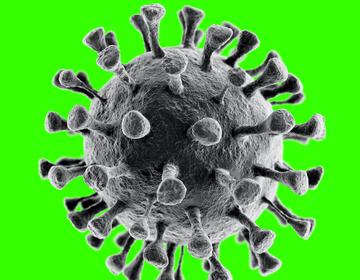Dr. Susan Slovin: NYC + Covid-19 April 1, 2020
This interview, “Dr. Susan Slovin: NYC + Covid-19 April 1, 2020,” is provided by Grand Rounds in Urology’s content partner, Prostatepedia.

Dr. Susan Slovin, MD, PhD, is a medical oncologist specializing in prostate cancer immunology at Memorial Sloan Kettering Cancer Center in New York City.
Prostatepedia spoke with her recently about the situation in NYC last week and any advice she has for prostate cancer patients.
What’s going on in New York this week?
Dr. Susan Slovin: It’s a challenge. The number of COVID-19 cases has increased through all the New York City hospitals, Memorial included. We’ve turned to telemedicine, though we’re not able to get all the programs on board for video calls. Everybody welcomes the telephone visits, but it’s important for people to see my face to make sure that they’re understanding what I’m saying and not thinking that I’m scrunching my face in disappointment or being upset. But people are accepting and appreciative. Most of my patients are managing well. They’ve been forthcoming and cognizant of both their own self-care and the care of their families by being attentive to hand washing and masks and whatever else is needed.
I do have some patients today that I have to see, particularly one, a man in his 40s who needs chemotherapy. We’re keeping a close eye on our patients. It’s push coming to shove that I am treating patients. There are some patients that I don’t need to treat emergently, like an older man receiving palliative treatment to keep the disease in check. If somebody’s disease is stable, we can forestall visits and treatment. But somebody younger, whose disease is on the march and we need to get a handle on it, is going to come in and get their treatment.
From outside of New York, it looks like it’s becoming more of an emergency situation. How do your patients feel about that? Are they nervous?
Dr. Susan Slovin: My patients are not nervous. Maybe because they’re older and they’ve seen pandemics before, like AIDS, tuberculosis, and polio. A lot of the millennials, other than technology, have never been exposed to infectious disease. But we know that after 50 or 100 years, these things happen. They tend to exert a horrible force on the population, both on the older and younger people. For the most part, none of my patients have exemplified panic to the extent that we’re seeing in other patients.
What’s the attitude among your fellow medical professionals in the hospital?
Dr. Susan Slovin: They’re facing a lot of challenges. We’ve had to quarantine a lot of patients who are not COVID-19 positive and transfer them to different services so that they’re away from those people who are COVID-19 positive. The COVID-19 positive people are both patients and staff.
We are facing the same challenges with products as the rest of New York City, New York State, and nationally. We receive masks as soon as we walk into our building. Even in our outpatient clinic facility, everybody’s wearing a mask unless you are in your office and working alone. I have to go down and see patients today, so I’m going to have to put on a mask. We don’t wear gowns.
We’ve been screening patients before their visits into clinic to make sure that nothing has changed. We’ve reminded them that if they wake up with a fever or other symptoms, they are to let us know immediately. Both patients and staff have risen to the occasion by being exceptionally responsible.
Do you have any advice for this week?
Dr. Susan Slovin: The advice for this week is for everybody to stay calm and do what we’ve been tasked to do, and that is to keep a level head. If I start going down, that’s not going to help my patients.
It’s frustrating to watch the mathematical models on the news. Everybody has to realize that these models may not reflect the reality. Those of us who have scientific backgrounds can understand it, but the typical lay person may not have the background to understand it, which is where panic comes from.
Not a member? Join Prostatepedia to read the rest of this month’s conversations.
View this interview on the Prostatepedia website or leave a comment here.
